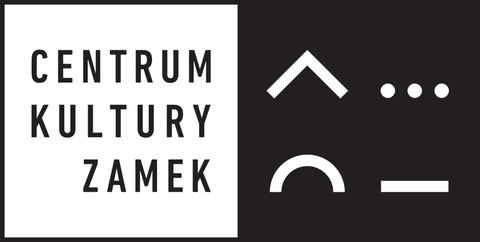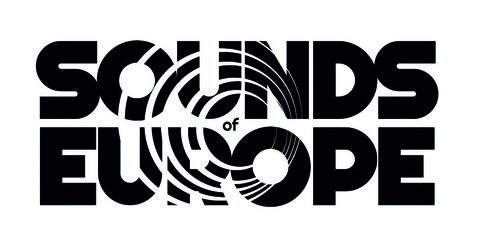ETHNO PORT 2025
Festiwal Ethno Port jest symbolem muzycznego spotkania kultur – przyciąga muzyków i publiczność z całego świata. Przez osiemnaście lat festiwal zdobył uznanie artystek i artystów, stając się istotnym punktem na muzycznej mapie Europy i największym świętem muzyki etnicznej w Poznaniu. To cztery czerwcowe, festiwalowe dni pełne koncertów, potańcówek, warsztatów, spotkań, które wyzwalają i radosną energię, i refleksję.
Festiwal Ethno Port od lat przyciąga zarówno wielbicieli i wielbicielki world music, jak i osoby poszukujące nowych brzmień i inspiracji. To wydarzenie, które buduje mosty między kulturami, łączy pokolenia i udowadnia, że muzyka jest uniwersalnym językiem. Zamek podczas czterech dni staje się centrum festiwalowych aktywności, a główne punkty programu, czyli kilkanaście koncertów, odbywają się na trzech scenach: w Sali Wielkiej CK ZAMEK, na Dziedzińcu Zamkowym i plenerowej w Parku Adama Mickiewicza.
Na przestrzeni osiemnastu lat tworzenia festiwalu, Centrum Kultury ZAMEK przybliżyło publiczności muzykę i płynące z niej tradycje ponad 220 zespołów pochodzących z 56 różnych krajów i regionów, były to między innymi: Albania, Algieria, Armenia, Belgia, Białoruś, Bośnia i Hercegowina, Brazylia, Bułgaria, Chiny, Czechy, Demokratyczna Republika Konga, Estonia, Etiopia, Finlandia, Francja, Grecja, Gwinea, Hiszpania, Holandia, Indie, Iran, Irlandia, Izrael, Jamajka, Jemen, Jordania, Kolumbia, Komory, Liban, Macedonia, Madagaskar, Mali, Maroko, Mauretania, Meksyk, Mongolia, Niemcy, Pakistan, Palestyna, Peru, Portugalia, Republika Korei, Reunion, RPA, Rumunia, Senegal, Serbia, Słowacja, Tunezja, Turcja, USA, Węgry, Wielka Brytania, Włochy i Wyspy Zielonego Przylądka.
Historia
Gdy w 2008 roku rozpoczynała
się historia festiwalu, nie zdawaliśmy sobie do końca sprawy, w jaką
fascynującą podróż wyruszamy. Na początek znaleźliśmy piękną, choć zaniedbaną
przestrzeń nad rzeką Wartą w centrum Poznania, gdzie postanowiliśmy zorganizować
spotkanie artystów i artystek grających muzykę etniczną dla publiczności. Dbałość o jakość
tego spotkania, towarzyszącą mu atmosferę i oprawę od początku była
najważniejszym zadaniem.
W piątek, 13 czerwca, pierwszy wieczór w historii festiwalu, okazało się, że liczba osób zorientowanych i oczekujących świetnej etnicznej muzyki jest wystarczająca, aby stworzyć niezapomnianą atmosferę koncertów, a zespoły obecne podczas pierwszej edycji festiwalu, tacy jak Värttina, Chemirani Ensemble, Adama Drame i Oumou Sangare wyznaczyli poziom, który wyznaczyły kierunek ETHNO PORTU w następnych latach.
W 2013 roku zapadła najważniejsza i najbardziej ryzykowna decyzja w historii festiwalu o przeniesieniu ETHNO PORTU z terenu nad rzeką do Centrum Kultury ZAMEK. Nowa formuła, wykorzystująca potencjał przebudowanych właśnie w tym czasie przestrzeni naszej siedziby, obroniła się, a przemiana monumentalnej kamiennej budowli w teren kolorowej imprezy – fascynującym wyzwaniem.
W ciągu osiemnastu lat tworzenia ETHNO PORTU gościliśmy ponad 220 zespołów pochodzących z różnych stron świata. Konsekwentnie prezentujemy także polskich zespoły. A przekrój i spis zespołów, artystów i artystek przybyłych do Poznania jest imponujący:
47Soul / Adam Strug Kompania / Ballaké Sissoko / DakhaBrakha / Danyèl Waro, Debashish Bhattacharya & Kacper Malisz / Dom Tańca Poznań / Driss El Maloumi / Félix Lajkó Trio / Iva Bittová & Čikori Los Pirañas / Maniucha i Ksawery / Mari Boine / Michał Felter „Polmuz” / Mosaik / Taraf De Haïdouks / Trio López / Petrakis / Chemirani / A
Filetta / Abavuki / Adama Dramé / Alamut / Alireza Ghorbani / Amit Carmeli & Joca Perpignan / Andrew
Cronshaw & Svetlana Spajić & Tigran Aleksanyan / Arifa / Balkan Beat
Box / Banda Nella Nebbia
/ Baraji / Bassekou Kouyaté
& Ngoni Ba / Bijan Chemirani / Boban & Marko Marković Orchestra / Bubliczki
/ Čači Vorba / Canzoniere
Grecanico Salentino / Catrin Finch & Seckou Keita / Cedric Watson
& Bijou Creole / Celso Piña / Charming Hostess / Chemirani’s / Chicuelo /
Christine Salem /
Cumbia All Stars / Cüneyt Sepetçi & Orchestra Dolapdere / Dagadana / Dakha Brakha / Debashish Bhattacharya / Desert Slide / Dhafer Youssef
/ Dikanda / Dimitris Mystakidis / Djivan
Gasparyan / Dom
Tańca Poznań /
Dubioza Kolektiv / Dżezbandyta / Fadia Tomb El-Hage / Eva Quartet
/ Faiz Ali Faiz / Fanfara Transilvania / Fanfaraï / Fanfare Ciocărlia /
Ganesh-Kumaresh / Félix
Lajkó / Fláre Beás Band / Gadająca Tykwa / Gramy! / Gulaza / Habib Koité & Bamada / Hanggai / Hee-Moon Lee Company / Hossein
Alizadeh & Pejman Hadadi / Houria Aïchi & L’Hijâz’Car / Hysni(Niko)
Zela & Albanian Isopolyphonic
Choir / Ibrahim Maalouf / Ifriqiyya Electrique / Indialucia / Ionică Minune Band & Alex Simu / Iva Bittová & Lisa
Moore / Jambinai / Janusz Prusinowski Trio / Jean-Luc Thomas & Yvon Riou / Joanna Słowińska / Justin Adams
& Juldeh Camara / Kalàscima / Kapela Hałasów / Kapela Maliszów / Kapela ze wsi Warszawa & Mercedes
Peón / Karolina Cicha
& Bart Pałyga / Kayhan Kalhor & Erdal Erzincan / Kimmo Pohjonen /
Klezmafour / Krzikopa / LA-33 / Lautari / Le Trio Joubran
/ Les Tambours de Brazza / Lo Còr de la Plana / Lula Pena
/ Maalem Mokhtar Gania & Michael Zerang & Wacław Zimpel / Mairtin
O’Connor Band / Mariana Sadovska / Mari
Boine / Maria
Pomianowska / Masala Soundsystem / Moh! Kouyaté / Mosaic / Motion Trio / Muzsikás / Muzykanci
/ Na Visoko / Nawal / Noreum Machi / Noura Mint Seymali / Oumou Sangare /
Pandit Hariprasad
Chaurasia / Panjabi MC / Pekko Käppi / Rabasa / Radio Cos / Raphael
Rogiński & Genowefa
Lenarcik /
Renata Rosa / Ross Daly / Rube Świnÿe / R.U.T.A / Sefardix Trio / Selamnesh & Badume's Band / Shafqat Ali Khan / Sirventés / Söndörgő /
Speed Caravan / Staff Benda Bilili / Sutari / Taksim Trio / Tamikrest / Taraf De Haidouks / Titi Robin /
Tarek Abdallah & Adel Shams el Din / Teresa Mirga i Kałe Bała / Transglobal Underground / Transkapela / Trebunie Tutki & Twinkle
Brothers / Trio 3MA / Tsigunz Fanfara Avantura / uKanDanz / Vardan Hovanissian & Emre Gültekin
/ Värttinä / Vidlunnia
/ Village
Kollektiv /
Violons Barbares / Wimme / WoWaKin / Yat- Kha / Yemen Blues / YeShe / Zofia Dragan & Kapela Manugi / Żywiołak / Sutari / Fanfara Awantura / Noiseband / Przodki / Kapela Dudziarzy Wielkopolskich / Timingeriu / Mehehe / Released Sounds Trio / Nasta Niakrasava / Vorsoba & Porakh / Koło Jana / Baul Meets Saz / Kapela Brodów / Odpoczno / Sofiane Saidi & Mazalda / The Como Mamas / Laboratorium Pieśni / Nooran Sisters / The Garifuna Collective / Lankum / Lina Babilonia y Son Ancestros / Evritiki Zygia / Lemma – Souad Asla / Kapela Niwińskich / Maija Kauhanen / Waed Bouhasssoun / Super Parquet /
Yegor Zabelov / Wernyhora / Masar / Okra Playground / Trio Da Kali / Zawierucha / Cimbalom Brothers / The Sero / Justin Adams & Mauro Durante / Sepia Ensemble / Trad.Attack! / Michal Noga Band /Fanfara Station / Rashida Sayed / Drewo / Anouar Brahem Quartet / Warszawsko-Lubelska Orkiestra Dęta / Dziczka / Hudaki Village Band / Karolina Cicha i Spółka / Atine / Niakrasava Paszek Tobera / US Orchestra / Chór Skovoroda /Zène’T Panon / RUŞAN FILIZTEK TRIO / Maria Mazotta / Balaklava Blues / CelloGayageum / Ndima / Bohemian Betyars / Sinnoi / Kosy / Stelios Petrakis Cretan Quartet / Conjunto Papa Upa / Trio Mandili / Le Trio Joubran / Tęgie Chłopy / Serbska Reja / Suferi / Khusugtun / Gabba /Trio Las Lloronas / Padit Deobrat Mishra / BCUC / Common Routes / Michalove / Dzambo Agusevi Orchestra / Haratago / ABAIM
__
tekst alternatywny
Zdjęcie przedstawia publiczność koncertu na otartym terenie przed Centrum Kultury ZAMEK w Poznaniu. Ludzie patrzą w kierunku sceny. W tłumie widać różnorodność wiekową - dorosłych z dziećmi, a także osoby starsze. W tle zabudowa ul. Św. Marcin w Poznaniu.





